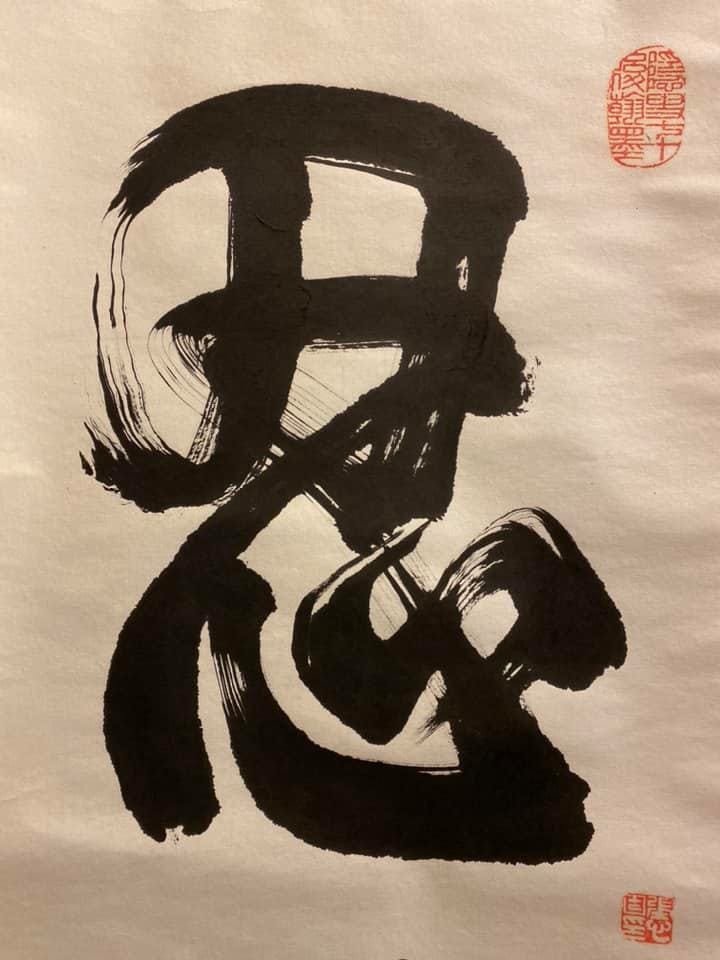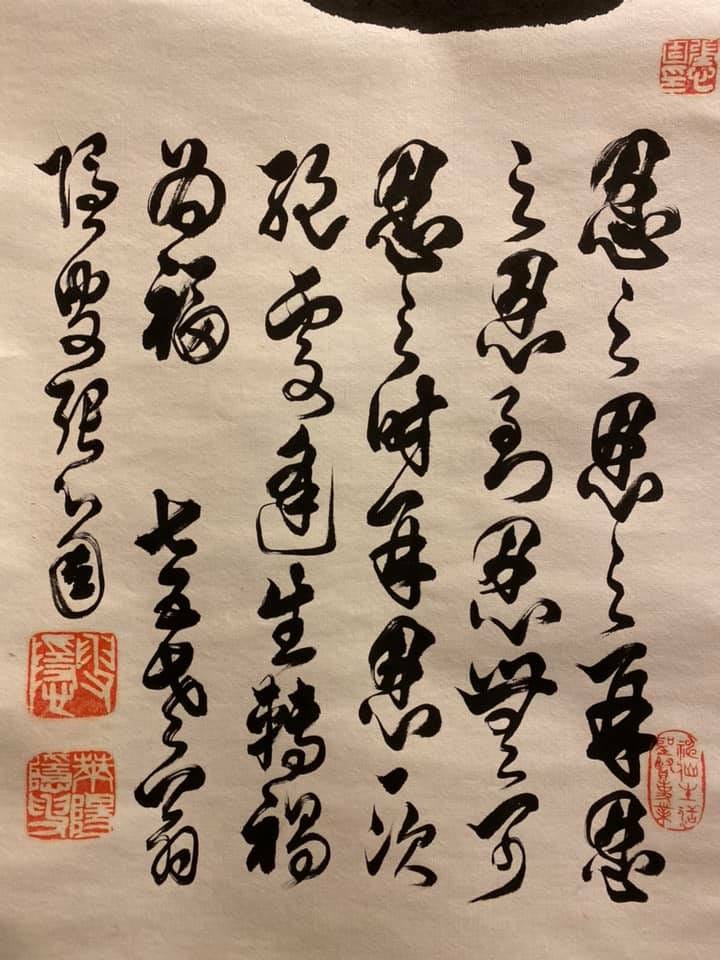The term shinobi (忍) is one of the most representative names for the art of ninjutsu and is deeply rooted in the philosophy, ethics, and mental discipline of this path. The composition of shinobi, formed by the characters 刃 (ha, blade or edge) and 心 (kokoro, heart, mind, or spirit), not only describes technical abilities but also encapsulates a philosophical ideal that defines the very essence of life and the purpose of a ninjutsu practitioner.
Etymology of 忍: "刃" and "心"
刃 (Ha): This character represents the blade or edge of a sword, a symbol of precision, discipline, and determination. In the context of the shinobi, the "blade" serves as a constant reminder of the need for focus, self-control, and clarity of purpose. The edge of a sword allows no room for error: it is direct, relentless, and effective. The blade does not waver; it fulfills its purpose with absolute accuracy. Symbolically, 刃 invites the practitioner to act with the same precision and determination in every aspect of their life and missions.
心 (Kokoro): This character denotes the heart, mind, and spirit as an inseparable whole in Japanese culture, representing the source of thoughts, emotions, and morality. For the shinobi, 心 suggests inner strength, calm under pressure, and emotional clarity necessary to act with wisdom and ethics. The heart-mind is the center of all actions, and its balance is fundamental to executing ninjutsu without succumbing to inner chaos or impulsiveness.
The Philosophy Behind 忍: "The Heart Beneath the Blade"
When these two characters, 刃 (blade) and 心 (heart), combine to form shinobi (忍), they create a powerful image: the heart beneath the blade. This concept symbolizes the ability to endure extreme pressure while maintaining calm and focus in high-stress situations. The blade above the heart also represents self-control, as emotional recklessness or a lack of discipline could "cut" the heart, leading to failure or self-destruction.
In philosophical terms, shinobi embodies:
Resilience and Self-Control: A practitioner of ninjutsu must endure adversity without yielding to emotions or impulses. Just as a sword blade remains straight and firm, the shinobi must keep their heart steady in the face of any challenge. This resilience involves not only physical endurance but also complete mastery of the inner world.
Precise and Silent Action: The heart beneath the blade does not act with unnecessary aggression or doubt. The ninja operates with precision, avoiding superfluous movements. The blade over the heart signifies that every action must be deliberate, calculated, and executed with maximum efficiency.
Balance Between Hardness and Softness: While the blade symbolizes hardness, strength, and the ability to cut, the heart represents softness, compassion, and sensitivity. A shinobi must find a balance between these qualities, acting with strength when necessary but never losing the humanity and ethics that guide their actions.
Ethical and Spiritual Reflections
The term shinobi goes beyond describing technical skills or a profession of espionage. It is an ethical ideal requiring the practitioner to transcend their ego and act for a greater good. In this composition, 刃 and 心 together suggest the need to act with determination but also with a solid moral foundation and a just purpose.
In the Bansenshukai, moral rectitude (shōshin, 正心) is emphasized as a fundamental principle of ninjutsu. Without a "righteous heart," even the most advanced skills are meaningless. The heart must be stronger than the blade, as it is the guide that ensures the edge is wielded only with justice and purpose.
The Japanese term shōshin (正心), composed of the characters 正 ("just," "correct") and 心 ("heart," "mind"), is a central principle in ninjutsu philosophy and in many Japanese martial and spiritual disciplines. Its meaning transcends a simple literal translation, integrating ethical, emotional, and spiritual aspects that guide the practitioner toward a balance between action and morality. Shōshin represents the idea of the "righteous heart," a state of integrity that aligns thoughts, emotions, and actions with universal values of justice and truth.
The Universal Lesson of Shinobi
The term shinobi and its etymology teach a universal lesson applicable beyond ninjutsu: life requires a balance between strength and compassion, action and reflection, precision and patience. To be a shinobi is not merely to learn techniques of stealth and strategy; it is a commitment to self-control, righteousness, and wisdom in every decision. The blade may be sharp, but without the heart to guide it with clarity, it becomes a useless or dangerous weapon.
Therefore, shinobi is not merely a name; it is a constant reminder of the balance one must seek in the martial path and in life itself.



